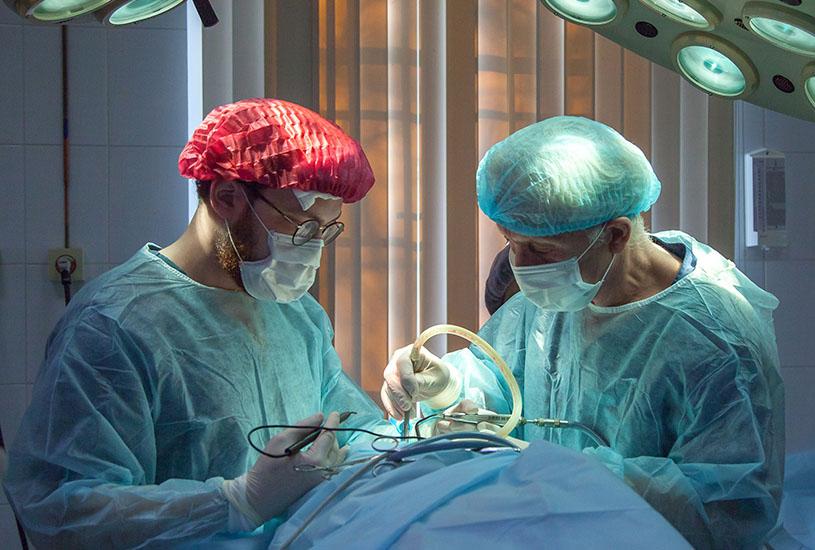Deakin and the Garvan Institute have joined forces to accelerate precision medicine through machine learning.
Precision medicine is hailed as the next big thing for healthcare, with the potential to tailor medical treatment to an individual’s genes, environment and lifestyles – and improve prevention and diagnosis of disease using genome sequencing.
In an Australian-first initiative launched this week, Deakin University’s Centre for Pattern Recognition and Data Analytics (PRaDA) and the Garvan Institute of Medical Research will work together to use machine learning and artificial intelligence to uncover unprecedented insights from genomic and clinical information to facilitate a new era in precision medicine.
The pioneering Garvan-Deakin Program in Advanced Genomic Investigation (PAGI) aims to set the intellectual and technological framework for a new way of thinking in medical research, healthcare and health systems management.
This will pave the way for big data and its analysis to transform our current understanding of human biology and disease.
“The integration of genomic data is at the heart of what is coming to be known as precision medicine, where everyone’s individual information, including genetic information, guides their healthcare,” explained Garvan Executive Director Professor John Mattick AO FAA.
The result of a close collaboration between Professor Mattick and PRaDA Director Professor Svetha Venkatesh, PAGI draws on Garvan’s position as one of the world’s leading centres for genome sequencing and analysis, and PRaDA’s expertise in applying machine learning and pattern recognition to datasets of many kinds.
The Program hopes to learn more from the vast amounts of human genome sequence data that are now being generated in Australia and worldwide.
Already, Garvan has sequenced almost 14,000 whole human genomes, and the speed of genome sequencing continues to increase rapidly.
In parallel, large clinical datasets – which contain remarkably rich multilayered information about an individual’s medical history – are being developed and reaching maturity.
“We now have the capacity to sequence human genomes increasingly cheaply, so we’re going to have, for the first time in history, access to thousands, and eventually millions, of genomes, along with matched clinical information,” Professor Mattick said.
“The amount of clinically relevant information that is encoded in those datasets is almost unimaginable – and so far, we have only scratched the surface of what genome sequences can tell us.”
Professor Venkatesh explained that machine learning allows mining of those datasets in a new way.
[testimonial_text]We now have the power to detect patterns and motifs within that very rich, multidimensional data, to make connections that no one has been able to make before. [/testimonial_text]
[testimonial_picture name=”Professor Svetha Venkatesh” details=”Director, PRADA”]
 [/testimonial_picture]
[/testimonial_picture]“These data present enormous challenges, as the number of individuals for whom we have data is much smaller than the enormous numbers of variants we find in the genomic data.
“We need to develop new methods to look at the variability between individuals, especially when some variants may be very rare, but of great impact.
“Handling these subtle differences will open up new ways of analysing and identifying patterns to ultimately understand, at the individual and population level, the factors that contribute to disease.”
In the first instance, PAGI researchers will develop tools and approaches, using genomic and clinical datasets already in existence in Australia, to uncover effective approaches to interrogation of linked datasets.
“Our program is ambitious and extremely exciting. I am delighted that we will be pushing the frontiers at the nexus of biology and computer science with this talented, multi-disciplinary team, Professor Venkatesh said.
“We are taking the first steps into a new world, which will fundamentally change the way discoveries are made, the way people manage their health, and the way the health system is organised,” Professor Mattick added.
“It is the next great technological and social advance. It will transform medicine from the art of crisis management to the science of health management, create new data industries and jobs in the largest and most important industry in the world, and have a major impact on the national economy, national prosperity and national wellbeing into the future.”
This article was published by Deakin Research on 28 March 2017.



